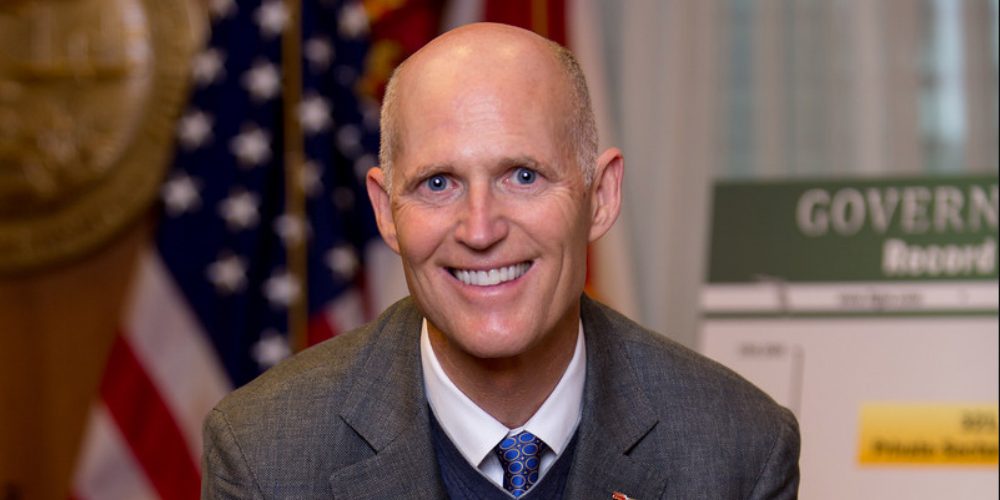A new Florida law is designed to bolster school safety by funding campus security upgrades and outlining new requirements, including in emergency preparedness. [related]
The Marjory Stoneman Douglas High School Public Safety Act was signed by Florida Governor Rick Scott on March 9. Scott described the law as a compromise at the signing but said it will help prevent future school shootings.
“Every student in Florida has a right to learn in a safe environment, and every parent has a right to send their kids to school knowing they will return safely at the end of the day,” Scott said during the signing. “Today I am signing bipartisan legislation that will help us achieve that.”
The law features several broad and controversial reforms that have major implications for the policies and procedures of K-12 schools in the state.
It also tasks the Florida Department of Education with creating the Office of Safe Schools, which will offer guidance with best practices in school security, threat assessments and emergency preparedness, among other things.
Bolstering Threat Assessment Programs, Information Sharing
School boards must establish threat assessment teams at each school to coordinate resources, assess and intervene with people whose behavior may pose a threat to the safety of the school.
When a preliminary determination by the team finds a student poses a threat, the team must immediately alert the superintendent, who then must immediately attempt to notify the student’s parent or legal guardian.
The threat assessment teams should include experts in counseling, instruction, school administration and law enforcement.
The law also aims to improve information sharing in several ways.
For instance, the threat assessment team may obtain a student’s criminal record history if they believe the student could pose a threat.
It also stipulates that all state and local agencies that provide services to students “experiencing or at risk of an emotional disturbance or mental illness” can share confidential information and records if the information is “reasonably necessary to ensure access to appropriate services for the student or to ensure the safety of the student or others.”
In addition, the law stipulates that the Office of Safe Schools will work with the Florida Department of Law Enforcement to create a centralized “data repository” and analytics resources to improve access to information from sources including social media; the Department of Children and Families; the Department of Law Enforcement; the Department of Juvenile Justice; and local law enforcement agencies.
In the event that school staff members suspect a mental heath or substance abuse crisis, they must engage behavioral health crisis resources including mobile crisis teams, school resource officers and the threat assessment team.
Finally, the law established a tool allowing people to anonymously report suspicious activity through a mobile app. The tool has been dubbed FortifyFL.
Emergency Preparedness Drills and Response
The law also requires active shooter training in schools once a semester. Participants must include students, district school safety experts, threat assessment teams, faculty, staff and certain first responders.
Regular emergency exercises for other events, including fires, natural disasters and bomb threats, must also be conducted.
Read Next: Campus Safety Survey Reveals What Hospital Security Professionals Plan on Spending in 2018
Schools must have emergency policies that, among other things, identify the people responsible for contacting the primary emergency preparedness response agency and establish emergency preparedness and notification procedures for incidents including active shooter, hazardous material spills and severe weather.
District superintendents must designate a school administrator as a “school safety specialist” for the district. The specialist must complete training provided by the Office of Safe Schools and is responsible for overseeing all school safety personnel, policies and procedures to ensure they follow state laws.
The specialist will also:
- Serve as the district liaison with local public safety agencies and national, state and community agencies on school safety matters
- Conduct school risk assessments using a tool created by the Office of Safe Schools and provide annual recommendations based on those assessments
- Provide training on emergency preparedness procedures and mental health assistance
- Conduct a campus tour with members of emergency agencies every three years
[inpagepromo]
Funding for Florida School Safety Provisions
The law requires sworn law enforcement officers to be stationed in every school in the state. The act gives $162 million to schools to help meet that requirement. Every school resource officer is required to undergo crisis intervention training.
The law also designates $99 million for districts to address specific safety needs at their schools. The law specifically mentions that the funding can go toward metal detectors, bulletproof glass, steel doors and upgraded locks.
The state Department of Education and the Office of Safe Schools will provide the grants.
Finally, the law gives $28 million to expand mental health service teams to serve youth with mental illness by providing counseling, crisis management and other services.
This story premiered on our sister publication, Campus Safety.










